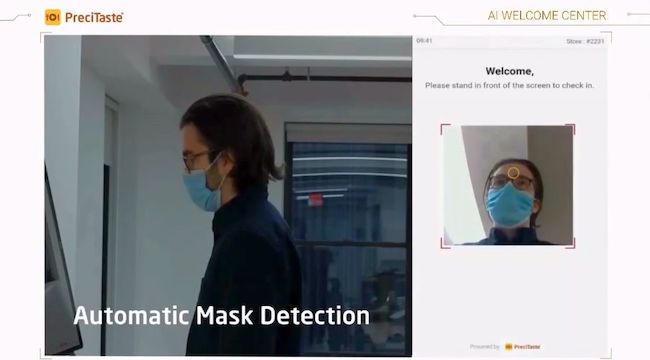"Welcome Center" Automates Health, Mask Check-in
- By Dian Schaffhauser
- 08/18/20
A company that produces technology for the food industry has developed a "welcome center" that schools can use to automate student and staff check-in. The "AI Welcome Center" from PreciTaste uses artificial intelligence and computer "vision" to guide users through a touch-free check-in experience.

The system automatically turns on when a person faces it. Then it performs a quick temperature measure with laser-sensing technology and checks for face masks using "vision AI."
Students can have IDs scanned, and visitors can receive printed labels identifying that they have been scanned. According to the company, the check-in process takes under 15 seconds and the program retains no personally identifiable information. However, a contract tracing feature lets students opt-in to receive alerts in the event of a positive case, to assist the school in doing contact tracing.
The program provides for a voice-activated questionnaire to customize the set-up for a given state's regulations and recommendations.
A module for occupancy management is also available as an add-on feature.
About the Author
Dian Schaffhauser is a former senior contributing editor for 1105 Media's education publications THE Journal, Campus Technology and Spaces4Learning.